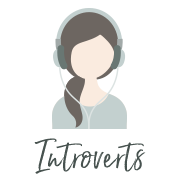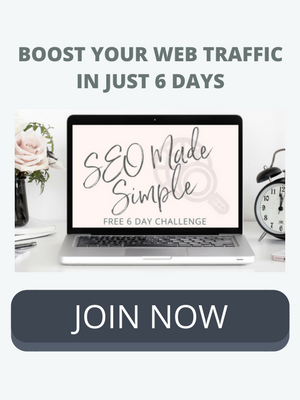How to Cut Back on Caffeine Without Losing Your Mind
/Entrepreneurs are known for running on coffee, right? How else would we get anything done?! I've had a love-hate relationship with caffeine for years. Sometimes I build up a tolerance and suddenly realize I'm consuming way too much every day. Other times, for seemingly no real reason, more than one cup of coffee will trigger a migraine. But I do know that I love my morning coffee and that caffeine can have some benefits.
Today's guest post is from Jess Cording, registered dietitian and health coach. She's breaking down how to cut back on caffeine without cutting it out completely, so you can still enjoy the positive benefits of it.
Coffee always has—and likely always will be—my vice of choice.
I shouldn’t even call it a vice. Coffee has actually been noted for an array of health benefits, and talking over coffee or tea is an important social connector.
A small to moderate dose of caffeine can make you feel more alert, energetic, focused, and upbeat. It’s also been shown to help the body perform better during exercise and has been associated with enhanced short-term memory, reduced risk of certain diseases, and improved long-term cognitive function.
Like many good things, however, too much can turn into a bad situation (cue the caffeine jitters and withdrawal headaches), so finding your sweet spot is key.
People often assume registered dietitians and nutritionists don’t have any diet struggles, but we do!
Finding my happy place with caffeine has been my personal wellness saga. I used to drink eight cups a day without thinking twice about it. I was busy, and coffee gave me energy, right? Logically, I knew it was too much, but I thought maybe I was an exception to the rule.
Yeah, no. When I turned 30, as I was juggling several bill-paying gigs while starting my own business, my body decided the old routine wasn’t working anymore. When wicked insomnia and heart palpitations set in, I had to be honest with myself and get real about self-care.
How you know you need to cut back on caffeine
If you experience sleep disturbances, jitters, or stomach issues, it could be the caffeine to blame. Also, if you find that you just can’t function without your morning fix or experience headaches, grogginess, or even flu-like symptoms, it could be a sign you’re dealing with a legit caffeine dependence.
It's an easy cycle to slip into, but a hard one to escape.
Making a big change can be daunting, but it’s totally doable!
Here’s how to tame the caffeine beast
Learn your limit
A healthy adult can safely consume about 300 to 400 milligrams of caffeine per day.
That’s about three to four eight-ounce cups of brewed coffee, but some brands (hello, Starbucks) can have as much as 200 milligrams per cup. A shot of espresso has about 75 milligrams per shot.
Green and black tea also provide caffeine, depending on how long it’s steeped for (longer = more caffeine). You’ll get anywhere from about 25-45 milligrams. Matcha, which is ground up green tea leaves, also provides caffeine. Energy drinks can vary a lot too, with some being more comparable to either tea of coffee.
Caffeine tolerance varies from person to person, and there are tons of factors that impact how the body metabolizes it: smoking, some medical conditions, and use of certain medications, like oral contraceptives.
ID your end goal
Decide how much caffeine you want to eventually be consuming.
While cold turkey to zero caffeine may sound like a good idea, it can make you pretty miserable and quick to throw in the towel. You’re more likely to stick with it if you make it a gradual thing and give yourself a chance to adjust.
Small changes add up to lasting changes, so set smaller, measurable goals get you there. For example, if you want to get from six cups of coffee to one, start with getting it to five for a week and gradually scale back.
Get real about your barriers
Maybe some of it is caffeine dependence but for many of us, it’s also about enjoying the ritual of a hot cup of tea or an afternoon iced coffee that gives us an excuse to take a break.
Maybe it’s part of your morning “me” time or your default activity for catching up with your best friend.
For example, you don’t have to give up, say, that coffee run—maybe you change your order from a large to a medium cup or try mint tea (which is naturally caffeine-free) instead of green.
Be Prepared
Withdrawal symptoms are, unfortunately, part of the deal when you’re stepping down your caffeine intake. They can range from mild to day-ruining, but keeping in mind that those symptoms are temporary can actually help you work through them.
Some of the most common are fatigue and headache, but even flu-like symptoms can occur. If you’re able to, plan tasks where you need more focus for the times when you have more energy or give yourself a few breaks through the day.
Set a Caffeine Curfew
Decide when to cut yourself off for the day based on your bedtime and how strongly you feel caffeine affects you.
Establish A Sleep Routine
Speaking of curfews, this is a great time to get a handle on your sleep routine. Aim to wake up and go to bed around the same time every day—even on weekends. Sounds nuts, but it can really help your inner clock get on track.
Stay Active
Endorphins released during exercise can help keep your energy and mood up. If you’re feeling too wiped for your usual workout, taking a walk or enjoying some other gentle movement like yoga or pilates counts too.
Keep Your Nutrition Game Strong
It’s not unusual to experience cravings for sugar or energy-dense, fatty foods when trying to cut caffeine. Rather than try to white-knuckle it, acknowledge those cravings and be mindful to fuel yourself with well-balanced meals spaced throughout the day. Make sure they are meals that provide a balance of protein, complex carbohydrates, and healthy fats. This promotes stable blood sugar and energy.
Also key: water. Because even mild dehydration can make you feel sluggish, drink up.
Call In An Expert
If you’re really struggling, talk with a doctor or registered dietitians to come up with a plan to help you meet your caffeine goal.
Do you feel that you drink too much caffeine?
Which tip did you find the most helpful? Leave a comment below!
About Jess Cording
Jessica Cording, MS, RD, CDN, is a registered dietitian, health coach, and writer with a passion for helping others experience a happier, calmer
life and a balanced relationship with food. Through her writing, consulting, public speaking, and counseling, she works with individuals, corporations, healthcare companies, food and lifestyle brands, and the media to help make drama-free healthy living approachable and enjoyable.
Need some lunch inspiration?
Jess created five day's worth of delicious make-ahead lunches to make it even easier to eat well on a busy day.











